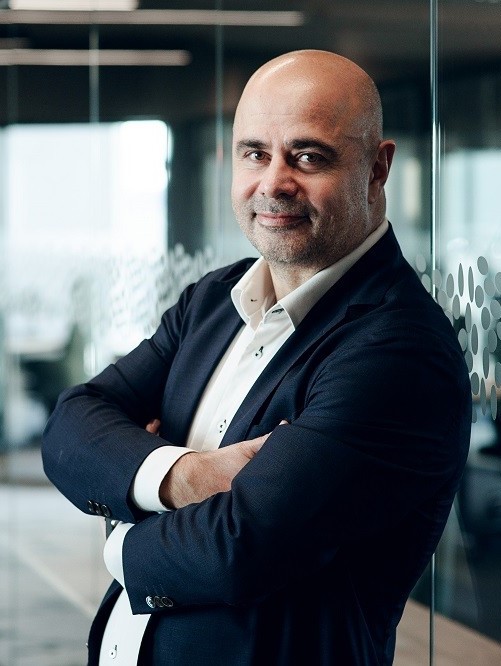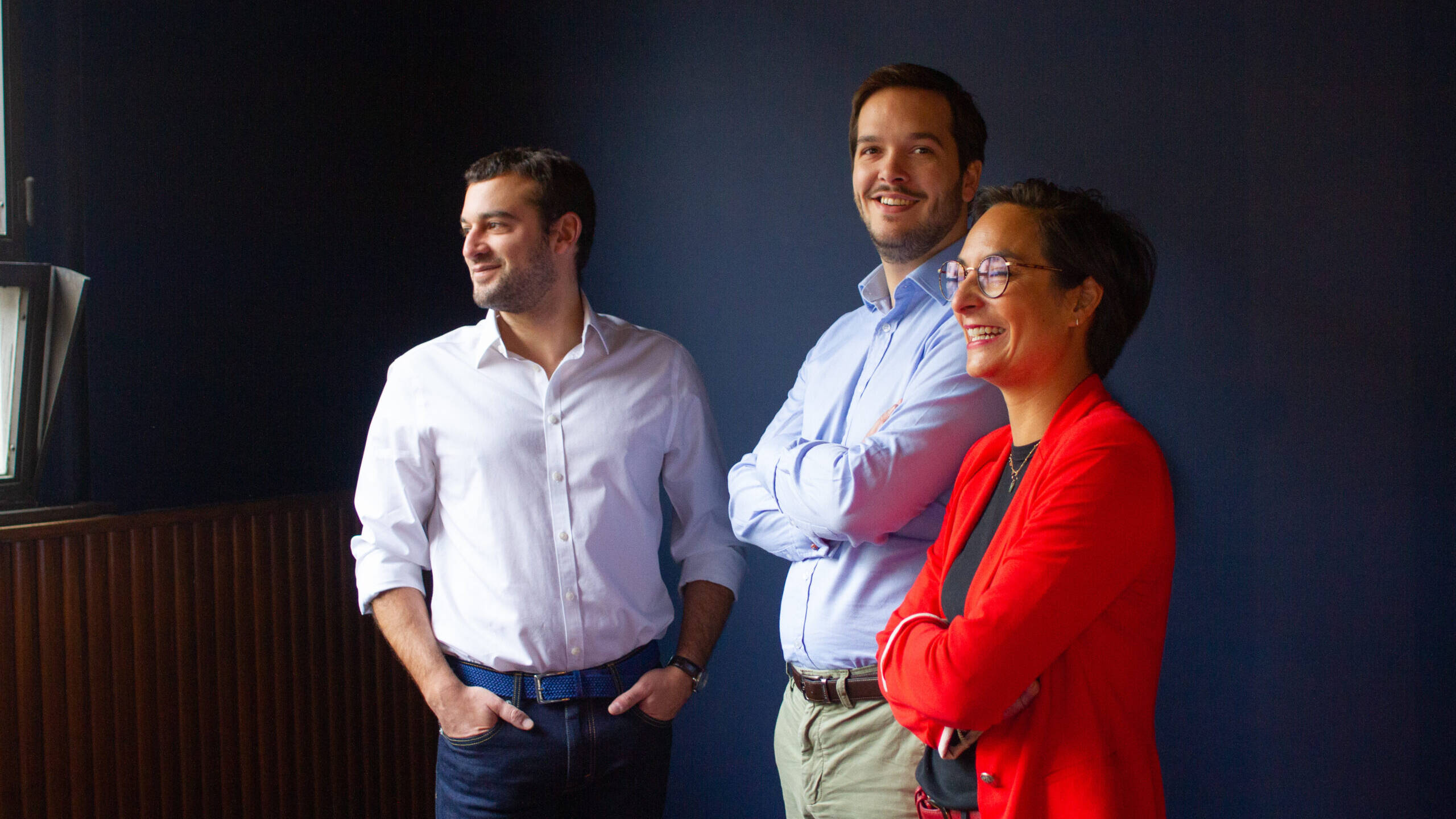Verve Ventures recently announced a partnership with DEPO Ventures based in Prague. DEPO’s co-founder Petr Sima explains in this interview why he is excited about the potential of startups in Eastern Europe and why Europe needs more cross-border investments in startups.

Co-founder and Managing Partner, Depo Ventures
Petr co-founded DEPO Ventures together with Michal Ciffra in 2016. Petr has more than two decades of experience in advisory and M&A, having founded NSG Morrison in Prague. He is also a board member of EBAN, the European Business Angel Network.
DEPO Ventures is a Czech investment group based in Prague. DEPO has raised two angel funds and started raising a Seed fund and has invested more than EUR 5m in more than a dozen startups across Central and Eastern Europe. DEPO’s investor network includes more than 150 business angels and VCs.
How did you personally discover startup investing?
I started my career with the privatization program of the Czech Republic that started in 1990. Afterward, I moved to advisory and consulting and founded my own company, NSG Morrison. I’m proud to say that I’ve never been employed in my life. But after 25 years of doing the same, I got bored. Michal, who would later become the co-founder of DEPO Ventures, joined my company after his studies. Startups were something new in the Czech Republic at that time, and they were obviously run by a younger generation. Michal asked me if we could do something in this space, and we built DEPO Ventures as a part of my company first. I quickly fell in love with the startup world and chose to hand over NSG Morrison to my partners to concentrate on investing in startups.
How has the ecosystem changed since you started in 2016?
It has developed quite a lot, but there is still a tremendous amount of work to be done. There was and arguably still is a big gap in early-stage financing. All founders need business angels and Seed investors who are confident enough to back a startup before it achieves revenues. Many venture capital firms claim to invest early, but few actually do. Europe needs more real business angels. One of our goals, when we started DEPO, was to build an angel investor community, encourage more investors to become active, and educate them. DEPO is building investment syndicates and has raised funds, but our principal goal is to be an incubator for new investors.
Who should become an angel investor, and who not?
Angel investors come in all shapes and forms. Our first fund was mainly aimed at C-level managers who had significant business knowledge and a well-established network but wanted to stay employed and not become full-time angels. I think the best angels are those who have either built a startup or joined one early on and came to money when the startup was sold. These people generally know what they talk about, and have a good understanding of what kind of help they can and should provide. The worst investors I have met are typically owners of small businesses that think they know everything best, take a majority stake in a company, run it to the ground and then go around telling everyone that startups aren’t worth investing in. In any case, we have much to learn from the US. I know an experienced US investor who did his first investments in the 80ies in the US. Already at this time, there were a number of entrepreneurs that built and sold their companies and started to invest in other, younger companies. This kind of culture and attitude, this hunger for risk is still sorely lacking in Europe. Many rich people I know don’t know anything better to do with their money than to buy yet another apartment block.
What kind of startups does DEPO Ventures invest in?
Even though we consider the whole world to be our playground, we focus on the arc between the Baltics all the way down to Athens. In this very wide definition of Central and Eastern Europe, people are still hungry, there is still a lot of potentials, and valuations are still cheaper than elsewhere. What we look for are founders that want to go global, not just build a small and successful company in their home country. The number of founders with such grand ambitions is definitely growing. What we also consider to be very important is commercial skills. As a founder, it isn’t enough to have mastered technical skills. Especially academics have a distaste for selling. In the US, it’s the complete opposite, every engineer there seems to also be a salesman.
Are valuations in Easter Europe really lower than in Western Europe?
There is a difference between Eastern and Western Europe and of course even more so compared to the UK or US. There, you have a lot of second-time founders that can raise USD 10m just with an idea and their good reputation. In Central and Eastern Europe, that’s not impossible, but very rare. In general, founders struggle more to get access to capital, they need to show a lot more traction to get funding. But there is also no need to exaggerate this. We now read a lot about valuations going down, but here, valuations cannot go down a lot because costs are growing. Software developers based in Prague or Bukarest can work for companies based on the other side of the planet, and their salaries have risen substantially to reflect that. And startups whose costs are mainly salary expenses need to be able to compete. Therefore, their valuations need to increase, not go down.

Invest in Startups
As one of Europe’s most active venture capital investors, we grant qualified private investors access to top-tier European startups. With investments starting at EUR/CHF 10’000, you can build your own tailored portfolio over time and diversify across stages and sectors.
While the workforce is increasingly global, investors still tend to prefer startups in their home country or city even. How important are cross-border investments for the development of the startup ecosystem in Europe?
This topic is very important to us and we have been working for years to build a community that is open to cross-border deals. For investors, it is important to be aware of the fact that several startups in different countries might be working on the same topic. And for founders, it is beneficial to have business angels from several different countries as investors, as they can help the development and expansion of the startup much better than only investors in one country. Angels who invest in different countries help to tie the fragmented European ecosystem together. We live in a world where you can literally work from anywhere now. Why would it matter so much where a startup is based?
What are success stories from the CEE that every European investor should know?
Estonia has produced several impressive unicorns such as Skype, the mobility company Bolt, and the sales platform Pipedrive. When there are a few such success stories, this can completely transform the ecosystem in a county. Take UiPath in Romania, for example. This startup has turned more than 70 of its employees into millionaires, and many of them will become important business angels. There are plenty of other examples: As a writer, you surely use Grammarly – it’s a unicorn from Ukraine.
I indeed do. At Verve Ventures, we’re happy that we could announce a partnership with DEPO Ventures in June 2022. We share the mission of making cross-border investments easier and more accessible to investors. What was your motivation for the partnership?
Our investor network likes to be in good company and Verve Ventures is also a trusted investor network. The deal flow of our two networks is complimentary, as Verve offers also offers investment opportunities that are a bit later stage. Sometimes, investors also want to invest in such deals as they can expect an exit in the nearer future than if they only invest in the early stages. Of course, we’d also like to bring some of the Central and Eastern European startups we have backed to the attention of a more international investor base through Verve. The more we’ll work together in the future, the clearer the synergies will become.
“Those that continue investing know that now is a good time to do so, the waters are clearer now.”
The times, however, aren’t optimal: In the first half of 2022, we have seen a significant economic downturn. How has it affected the behavior of your angel network?
I think this has been a very healthy thunderstorm. The “tourists”, how I call the speculators that ran after highly valued pre-IPO startups, have left the game. Those that continue investing know that now is a good time to do so, the waters are clearer now. Now some angel investors have scaled back their new investments because a major part of their wealth is parked in stocks, and they don’t want to sell them while their prices are down. But for venture capitalists that have recently raised funds, there is no reason to stop doing what they should do.
Economic uncertainty certainly also reduces the appetite of new people to start investing in startups where the expected returns tend to be quite far in the future. It’s something very different than investing in the stock market.
If you invest in startups, you do it for the money, as numerous studies have shown that the returns of venture capital as an asset class beat everything else. But if you want to do it well you also have to enjoy the uncertainty that comes with it. You have to have patience. And you need to enjoy helping new technologies see the light. The ultimate goal is financial returns, but I’d say that the things you learn by doing it are a reward in itself. You don’t need to do a founder’s job. Good founders don’t need much help, they just need someone to open doors for them. If you can help with that, and facilitate intros to the first handful of clients, that is more than enough.
We’ve talked only about private investors so far. What role do institutional investors play in Europe?
European pension funds invest only 0.18% of their assets in venture capital. This is laughable. Most of the institutional money in Europe comes from US pension funds which have understood already years ago how the continent has developed and how attractive the valuations are compared to the US. For pension funds with their long investment horizon, venture capital is a perfectly suited asset class. They should invest at least a few percent of their assets in startups. Even if they invested just 1%, that would translate to EUR 30 billion, which is more than the EUR 23 billion that was invested in Europe in Q2 2022. It would make a huge difference. But pension fund managers are too risk-averse or just don’t know the space well enough. There is a lot of education still to be done. In some countries, the regulation also needs to be adapted as it isn’t liberal enough. But everyone in Europe should be interested in making the continent more entrepreneurial and creating a more wealthy and technologically advanced society. In the end, making Europeans richer would also wean them from the dependency on the state and the welfare system.
Written by
WITH US, YOU CANCO-INVEST IN DEEP TECH STARTUPS

Verve's investor network
With annual investments of EUR 60-70 mio, we belong to the top 10% most active startup investors in Europe. We therefore get you into competitive financing rounds alongside other world-class venture capital funds.
We empower you to build your individual portfolio.
More News
16.05.2022
“Across Europe , clients are starting their mortgage journey online”
Banks need to think about moving from analog to digital when selling their services. Startup Oper provides the best digital mortgage experience across Europe and has already processed EUR 1 billion of volume in 2021, explains Oper’s co-founder Geert Van Kerckhoven in this interview.
06.07.2021
Byrd raises EUR 16M Series B, expands across Europe
Led by Mouro Capital, the round includes participation from existing investors including Speedinvest, Verve Ventures, Rider Global, and VentureFriends.
26.11.2020
Verve Ventures partners with the leading Belgian business angel network BeAngels
The Belgian business angel network BeAngels and Verve Ventures are joining forces to speed up fund-raising and the development of European startups. Through an exclusive partnership, BeAngels will offer Belgian investors access to the state-of-the-art platform developed by Verve Ventures and will contribute to sourcing new deal flow from Belgium as well.
Startups,Innovation andVenture Capital
Sign up to receive our weekly newsletter and learn about investing in technologies that are changing the world.




